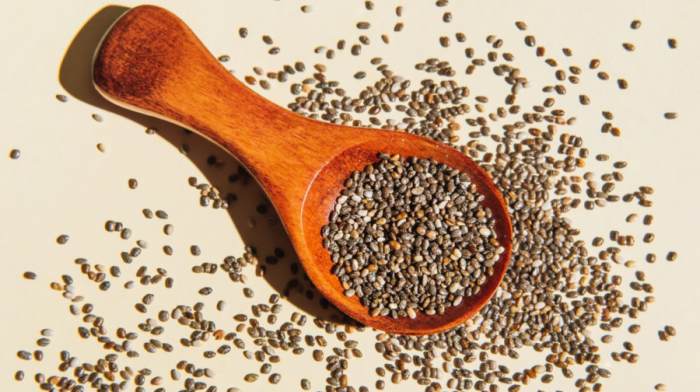While the demand grows for popular weight loss medications like Ozempic and Wegovy, you might be interested in a more natural alternative. Enter: lemon balm for weight loss. Plenty of women on TikTok are sharing the benefits of lemon balm these days, but is it the real deal?
One creator suggests that lemon balm helps with stress, insomnia, alertness, and that it’s been found to potentially help reduce PMS symptoms. Another TikToker says the herb even has energetic properties, helping you open up to new experiences and connect with new people.
The dangers of “detox” teas or supplements as a way to lose weight are pretty widely known, but could sipping lemon balm tea be a safe and effective way to do so? To find out, we tapped medical experts for their input on the benefits and risks of consuming lemon balm, how to try it safely, and whether lemon balm for weight loss is really supported by science—or just another TikTok trend.
Meet the experts: Sarah Fishman, MD, PhD, is an endocrinologist based in New York City. Deepa Sannidhi, MD, is an obesity and lifestyle medicine physician and associate professor of family medicine and public health at UC San Diego.
What is lemon balm?
Lemon balm, part of the mint family, is a popular herb to keep around the kitchen. It’s known for having a pleasant, mild lemony scent and light citrus taste, and is often sold in the form of tea, extracts, oils, capsules, and even topical creams. It was used in the Middle Ages to reduce stress, promote sleep, improve appetite, and help with other ailments, per Mount Sinai.
Lemon balm comes from the leaves of the Melissa officinalis plant, a shrub native to the eastern Mediterranean area and western Asia, per the National Library of Medicine. It has long been appreciated for the flavor it adds to food and its naturopathic uses, says New York City-based endocrinologist Sarah Fishman, MD, PhD. It has been used in salads, soups, marinades, and teas for centuries, but you can also enjoy it via aromatherapy, she says.
The oil made from dried lemon balm leaves can be incorporated into food, but much of the research about the human consumption of lemon balm is based around topical use in creams, per Mount Sinai.
Does lemon balm help you lose weight?
Doctors aren’t convinced.
The FDA approved the consumption of lemon balm in food, but that doesn’t imply an official endorsement of any claims that lemon balm can make you lose pounds, says obesity and lifestyle medicine physician Deepa Sannidhi, MD. It’s unclear whether or not lemon balm can help you lose weight, and if it does, it’s unclear to what extent, she says.
Dr. Sannidhi points to scientific studies conducted on mice as the only confirmed research done on lemon balm and weight loss.
The existing research could be an indication of the possibility that lemon balm could promote weight loss in humans—but there isn’t enough evidence to know for sure, Dr. Sannidhi says.
The plant contains chemicals that potentially help improve your glucose metabolism, Dr. Fishman says.
Consuming lemon balm has been shown to reduce cholesterol and triglycerides in the body, and triglycerides play a significant role in insulin resistance, per a 2024 study published in the BMC Complementary Medicine and Therapies Journal. If you’re experiencing insulin resistance, your body can’t process glucose (a.k.a. blood sugar) normally, which typically leads to things like weight gain and even type 2 diabetes if it goes unaddressed, according to the CDC.
Despite these potential benefits, lemon balm is “not very potent as a weight loss agent,” Dr. Fishman says. So, any weight loss-based claims from social media should be taken with a grain of salt.
Potential Benefits Of Lemon Balm
Lemon balm has been *lightly* lauded as a helpful herb for reasons besides weight loss, one of which is anxiety, Dr. Sannidhi says. Participants who consumed lemon balm displayed significant improvements in their symptoms relating to depression and anxiety, per a 2021 systematic review of clinical trials published in Phytotherapy Research. However, more high-quality studies are needed to firmly determine the relationship between lemon balm and mental health, per the review.
Taking lemon balm regularly may also increase levels of gamma-aminobutyric acid (GABA), a neurotransmitter that inhibits nerve activity in the brain and is thought to lead to reduced anxiety, stress, and tension, Dr. Fishman says. It could also reduce cortisol levels, help with inflammation, and relax the muscles of the GI tract to help with bloating and period cramps, Dr. Fishman says.
Lemon balm might be a helpful sleep aid and even a potential remedy for insomnia, per a 2021 study in Nutrients. But researchers don’t completely understand the mechanism regarding the treatment of insomnia, so as of now, clear benefits can’t be determined.
Currently, it seems the most promising benefits of lemon balm are its calming properties and potential to help you sleep better. But it’s critical to understand that research isn’t fully conclusive, so the purported benefits of lemon balm can’t be determined for sure, despite any personal testimonies from people who use it, Dr. Sannidhi says.
Potential Risks Of Lemon Balm
Similarly to the benefits, the risks of lemon balm haven’t been thoroughly researched. Medical experts often point out the negative impact lemon balm can have on people with thyroid issues—specifically hypothyroidism (an underactive thyroid). The plant has been known to improve symptoms of hyperthyroidism (an overactive thyroid) when taken in capsule, tea, powder, or tincture form, but people with the opposite condition should avoid it.
Pregnant women, nursing moms, and people with low thyroid hormone levels also probably won’t benefit from lemon balm, Dr. Fishman says. There hasn’t been enough research to officially promote the use of herbal treatments for women during pregnancy, per a 2016 study in BMC Complementary and Alternative Medicine, so it’s best to consult a doctor and follow their recommendations.
Finally, lemon balm can have a sedating effect, so be careful when driving, Dr. Fishman says.
How To Lose Weight Safely
Start with consistent lifestyle changes, says Dr. Sannidhi. Regular exercise is an obvious answer to promoting weight loss and overall physical health, but a nutrient-rich diet will help as well, she says. “Fruits, vegetables, beans, and whole grains are good for your heart and often have fewer calories for a higher volume of food,” she says.
It’s also important to set realistic weight loss goals you can stick to, and that make sense for your lifestyle, says Dr. Fishman. Losing five to ten percent of your starting weight in a three to six-month time frame is generally a reasonable expectation to set, she says, depending on where you are starting from. Always talk to a doctor for personalized recommendations and guidance.
If you find it hard to stay motivated, finding an accountability buddy—whether a friend or a healthcare professional—can help you stay on track, Dr. Sannidhi adds. This can look like meeting with a dietitian, coach, or checking in periodically with your doctor.
Monitoring your weight loss journey with weekly weigh-ins or paying attention to your calories can also help, Dr. Sannidhi says, but only to the extent that you stay mindful (and not obsessive) about it. If you have an eating disorder such as anorexia, bulimia, or binge eating disorder, a disordered relationship with food, or body dysmorphia, there is a chance you should not attempt to lose weight without professional support, she says. Instead, it can be useful to talk with a specialist in eating disorders to determine the best plan for you.
Losing weight is a personal choice that only you can make, but remember that TikTok doesn’t have all the answers about how to better your health. At the end of the day, though, there’s no harm in wanting to add some lemony zest to your salad.






















Comments (0)